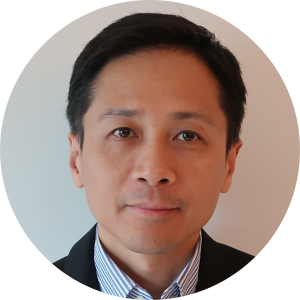
Prof. Thomas Choi
Professor
Centre for Smart Health
School of Nursing
The Hong Kong Polytechnic University
Topic: Identification of lower-limb movement intention with BCI and machine learning
Abstract:
Brain-computer interface (BCI) has been used to develop neuro-rehabilitation approaches that can produce external feedback based on movement intentions which are directly identified with the electroencephalogram (EEG) signals acquired non-invasively from the brain. While the approaches have used for upper limb rehabilitation, it is challenging to develop BCI for lower-limb rehabilitation since the signals are generated from deeper brain regions that are less distinctive for classification. This talk will introduce the use of machine learning technologies to analyse the EEG signals and detect lower-limb movement intention, with focus on fuzzy systems which have good interpretability and classification performance. Multi-view algorithms and multi-task algorithms will also be introduced for the purposes of extracting more information from the EEG signals and increasing the performance of movement intention classification. The design of a close-loop stimulation experiment to evaluate the algorithms will be discussed, where interactive visual cues and haptic feedback, driven by EEG signals collected by BCI, are used to guide the users.
Speaker Profile:
CHOI Kup-Sze (Thomas) has been engaging in interdisciplinary research crossing over computer science, medicine and healthcare for over two decades. He has conducted research in computer graphics, haptics and virtual reality, with a range of applications including soft-tissue biomechanics, collaborative surgical simulation, cataract surgery, hand rehabilitation, psychiatric patient education, hygiene education, infection control training, and clinical education. Thomas has increasingly focused on artificial intelligence and healthcare predictive analytics since more than ten years ago. He conducts research on machine learning algorithms and their applications in healthcare, e.g., prediction of elderly quality of life, dementia risk, post-surgery mortality and prostate cancer risk through data-driven approaches. The work has also been extended to the development of intelligent algorithms to identify human intentions using brain waves in brain computer interface applications. Thomas earned his Ph.D. degree in Computer Science and Engineering from the Chinese University of Hong Kong. He is currently a Professor with the Hong Kong Polytechnic University, and the Director of the Centre for Smart Health.
